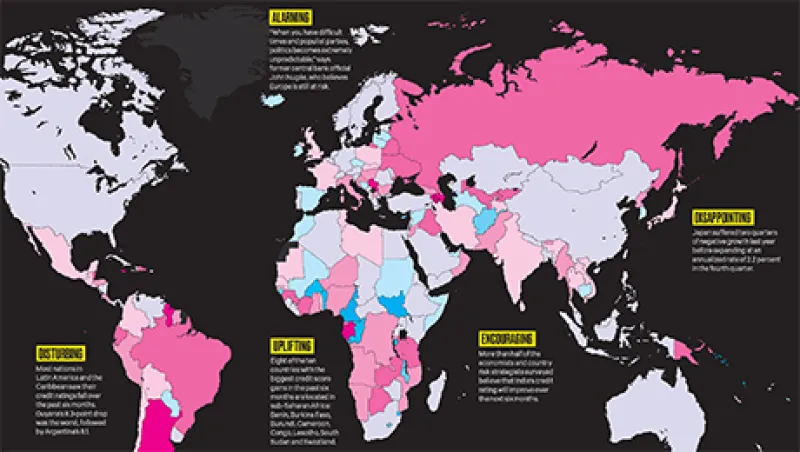
Credit Worries in Europe and EM Countries Offset U.S. Strength
Our Country Credit survey shows widespread weakness stemming from concerns about the euro area and the health of emerging-markets economies.
Harvey D Shapiro
March 3, 2015


